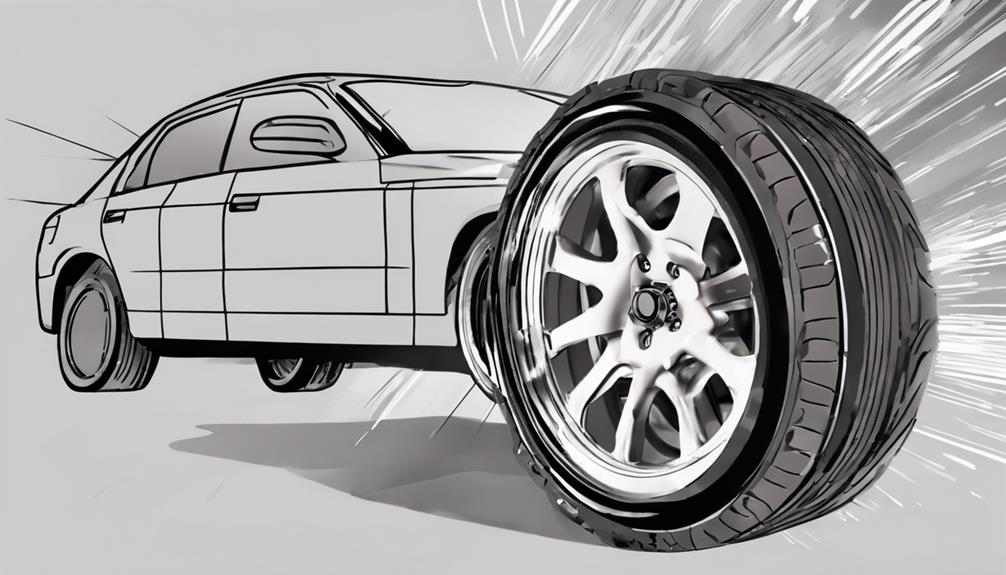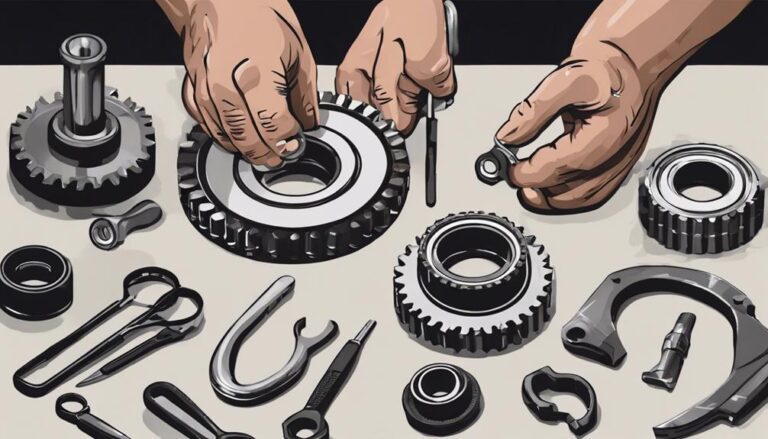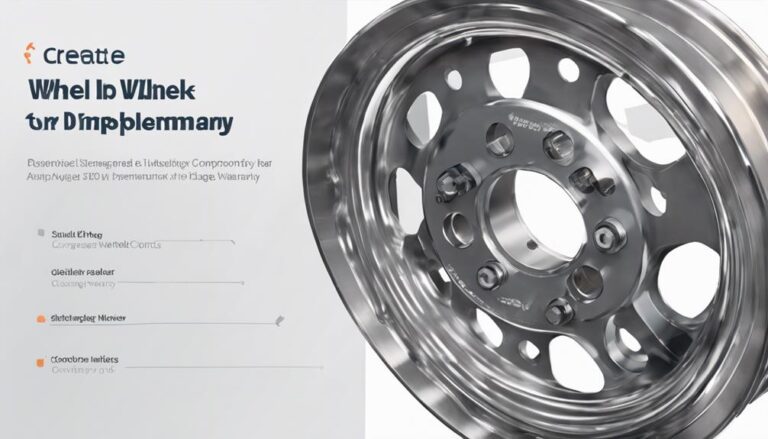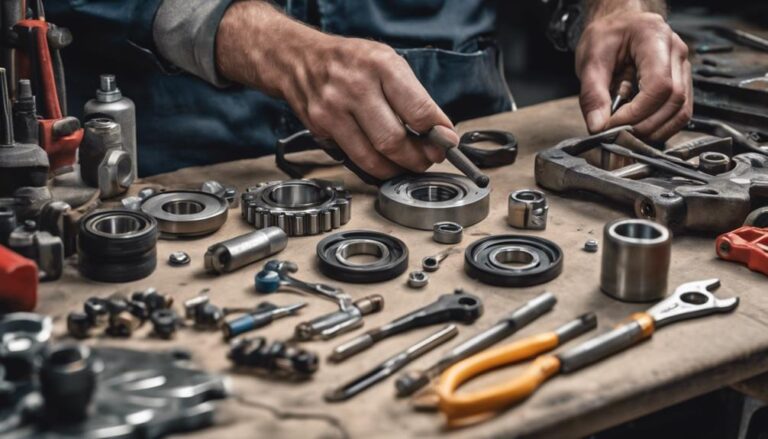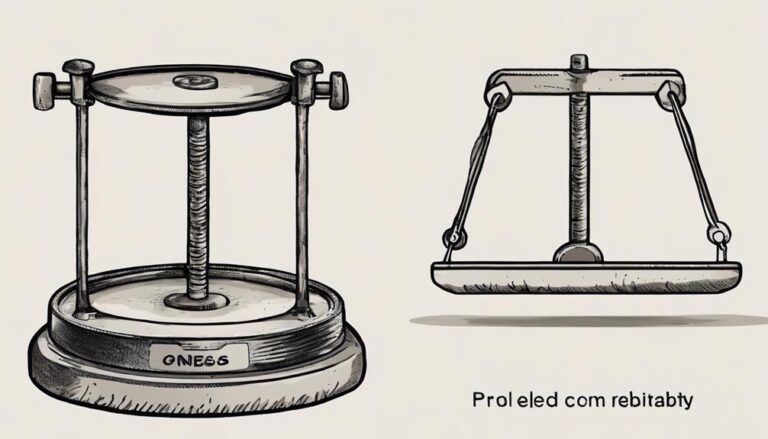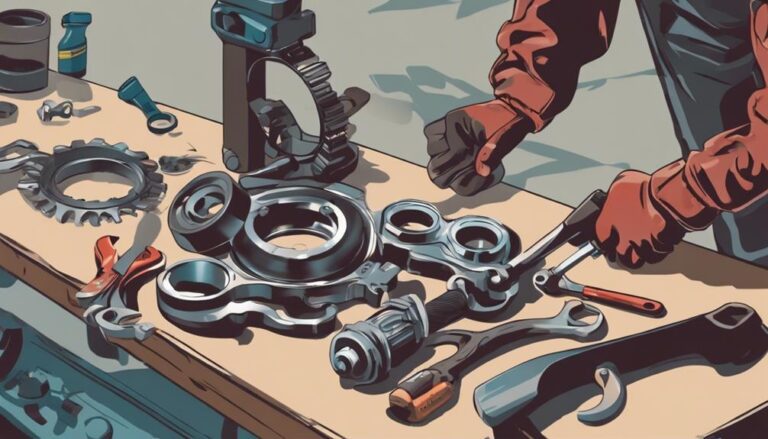3 Best Signs of Bad Hub Assembly Noises
Imagine driving down a quiet road, windows down, enjoying the day when suddenly, you hear a series of unsettling noises coming from your vehicle.
These sounds, often likened to the creaking of an old wooden door, could be more than just a nuisance. They might be warning signals of a failing hub assembly.
Understanding these noises can help you address potential issues before they escalate into costly repairs or dangerous situations.
Key Takeaways
- Grinding, roaring, knocking, or popping sounds indicate bad hub assembly
- Uneven tire wear and steering issues stem from faulty hub assembly
- Address noises promptly to ensure vehicle safety and performance
- Loose steering or wobbly sensation requires immediate attention
Common Noises Indicating Bad Hub Assembly
If you hear grinding, roaring, knocking, or popping sounds coming from your wheels, it may signal a problematic hub assembly. A broken wheel bearing within the hub assembly can cause these noises.
When the hub assembly is faulty, the wheel may become loose, leading to uneven tire wear. Uneven tire wear is a common indicator of issues with the hub assembly. This uneven wear can affect the steering of your vehicle, causing it to feel less responsive and stable on the road.
Additionally, the grinding noise you hear while driving can be directly linked to a malfunctioning hub assembly. If left unaddressed, a damaged hub assembly can further impact the overall performance of your vehicle, potentially leading to more severe issues with the steering and tire functionality.
It's important to address these signs promptly to guarantee the safety and efficiency of your vehicle.
Steering Stability Affected by Hub Assembly
Steering stability can be drastically compromised by a malfunctioning hub assembly, impacting your control over the vehicle's direction and handling. Issues with the wheel hub assembly can lead to uneven wear on tires, affecting the overall performance of the vehicle. If you notice your vehicle pulling to one side or experience grinding noises when turning, it could be a sign of worn bearings within the hub assembly. Loose steering or a wobbly sensation in the steering wheel may also indicate problems with the hub assembly, necessitating immediate attention to prevent further damage. Checking the wheel bearings and ensuring the hub assembly is in best condition is essential for maintaining proper steering stability and avoiding accidents on the road.
| Symptom | Description |
|---|---|
| Uneven wear | May result from hub assembly issues affecting steering stability. |
| Pulling to one side | Indicates potential problems with bearings within the hub assembly. |
| Grinding noises | Could be a sign of worn components within the wheel hub assembly. |
Brake-Related Issues From Faulty Hub
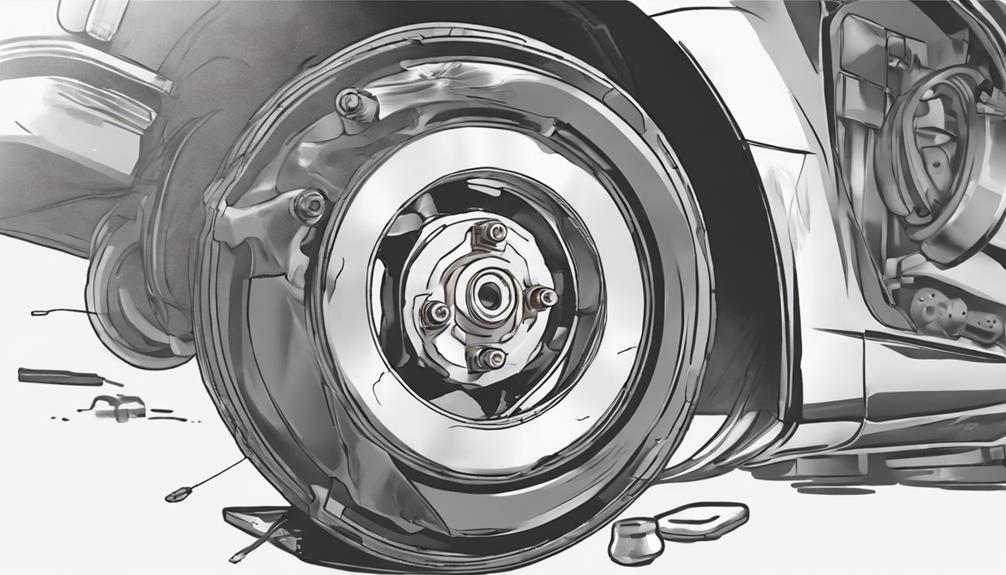
Brake-related issues stemming from a faulty hub assembly can manifest as uneven or abnormal wear on brake components. When dealing with a bad wheel bearing or issues with the wheel hub assemblies, it's important to check for specific signs that could indicate brake-related problems:
- Uneven Tire Wear: A bad wheel bearing wears unevenly, which can lead to uneven tire wear. If you notice uneven tread patterns on your tires, it may be due to a faulty hub assembly affecting the brakes.
- Grinding Noises: One of the most common signs of brake issues caused by a bad hub assembly is when you hear a grinding sound while braking. This could indicate that the hub assembly isn't functioning correctly, impacting the brake system.
- Steering Wheel Vibration: A damaged hub assembly can result in vibrations felt through the steering wheel. If you experience vibrations or wobbling while braking, it's important to have the hub assembly checked to prevent further brake-related problems.
Frequently Asked Questions
What Does a Bad Wheel Hub Assembly Sound Like?
When a wheel hub assembly goes bad, you'll notice grinding, roaring, knocking, or popping sounds from your wheels. These noises, along with wheel vibration, wobble, or poor steering control, signal potential issues that need immediate attention.
At What Speed Do You Hear a Bad Wheel Bearing?
You'll hear a bad wheel bearing noise starting from 15 mph, intensifying between 15-50 mph, and turning into a rumbling sound at higher speeds. Varying speeds provoke different levels of noise, aiding in identification.
How Do I Know if My Wheel Hubs Are Worn?
To determine if your wheel hubs are worn, look for common symptoms like wheel vibrations, perform a DIY inspection for noise variations, consider professional diagnosis for warning signs, factor in replacement cost, prioritize preventative maintenance for driving safety and longevity tips.
How Do You Know if You Need a New Wheel Hub Assembly?
If you notice grinding, roaring, or popping noises from your wheels, along with uneven tire wear or steering issues, it's time to replace your wheel hub assembly. Don't delay; DIY or consult a professional for a smooth ride.
Conclusion
In summary, when it comes to detecting bad hub assembly noises, it's important to listen for the telltale signs of knocking, crackling, and rumbling.
Ignoring these warning sounds could lead to dangerous steering issues and brake-related problems down the road.
So, when in doubt, remember that a stitch in time saves nine – addressing these noises promptly can prevent costly repairs and guarantee a smoother ride for your vehicle.
Stay vigilant and keep those wheels turning smoothly!

